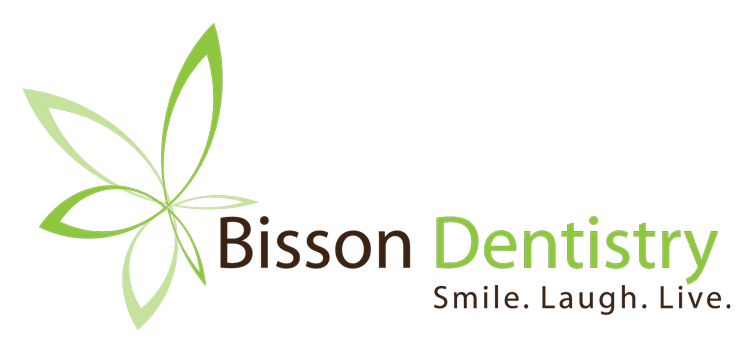Do you find yourself constantly dealing with jaw pain or discomfort while chewing, talking, or even yawning? That persistent pain could be caused by Temporomandibular Joint (TMJ) disorders. TMJ disorders affect the joints that connect your jawbone to your skull, playing a crucial role in the movement of your jaw. When these joints are strained or damaged, it can lead to symptoms like soreness, stiffness, clicking or popping sounds when you open your mouth, limited jaw movement, or even frequent headaches.
The good news? You don’t have to live with that discomfort indefinitely. Effective pain relief for TMJ is achievable through a combination of home remedies, professional treatments, and lifestyle adjustments. Strategies like applying heat or cold packs, practicing jaw exercises, or managing stress to avoid clenching your jaw can make a big difference in easing symptoms. Professional treatments, such as physical therapy, dental appliances like night guards, or in some cases, minimally invasive procedures, can also help address the root causes of TMJ disorders.
It’s important to listen to your body and take proactive steps toward relief. Here, we’ll explore the variety of options available to help you reduce TMJ pain, restore your comfort, and take control of your oral health. Whether it’s small daily changes or seeking professional care, there’s hope for finding lasting relief.
Explore Self-Care Remedies
When TMJ pain first strikes, simple at-home remedies can provide temporary relief and help you manage discomfort. These self-care practices are easy to implement and could make a noticeable difference.
Start by trying hot or cold compresses applied to the sides of your face. A warm compress relaxes tight muscles, while a cold one can reduce inflammation. Additionally, adopting a soft diet (think soups, smoothies, and mashed foods) prevents overworking the jaw. Avoid chewy or hard foods like bagels, gum, or raw vegetables that could strain your jaw further.
Jaw exercises can also improve TMJ mobility and reduce pain over time. Gentle stretching or massaging the jaw muscles can help loosen tension and ease discomfort. Be sure to consult with a healthcare professional before starting exercises, especially if your pain is severe.
Seek Professional Diagnosis & Treatment
If self-care remedies don’t provide lasting relief, it’s time to consult with a dental professional experienced in treating TMJ disorders. At Bisson Dentistry, we specialize in helping patients address and manage TMJ pain to restore a better quality of life.
Through professional evaluation, your dentist can determine the exact cause of your TMJ issues. Common treatment options include custom-made dental splints or night guards, which prevent teeth grinding (a major contributor to TMJ pain) and help stabilize your jaw. Additionally, dental adjustments or orthodontic treatments can align your bite to alleviate excess strain on your TMJ.
For many patients, exploring professional TMJ treatment not only offers pain relief but also improves overall oral function and well-being. Learn more about our treatment options for TMJ disorders and get started on your path to healing.
Lifestyle Changes for Long-Term Relief
TMJ disorders can often improve by making mindful lifestyle changes that reduce jaw strain over the long term. Stress management is a big part of this equation. Stress can lead to habits like clenching your teeth or jaw, which exacerbates TMJ symptoms. Implement relaxation techniques such as deep breathing, meditation, or yoga to help keep your muscles relaxed.
Additionally, pay attention to your posture. Slouching, especially while working at a computer, can put undue strain on your neck and jaw. Try to sit up straight and keep your computer screen at eye level to maintain proper alignment.
Simple everyday changes, such as avoiding chewing gum and refraining from excessive yawning, can also ease the load on your TMJ over time. Combining these habits with professional care is an excellent path to long-term improvement.
Take the First Step Toward Pain-Free Living
TMJ pain doesn’t have to take over your life. Relief is within your reach through a combination of at-home care, professional treatments, and lifestyle adjustments. By addressing the root causes and incorporating these solutions, you can minimize discomfort and start feeling like yourself again.
If you're ready to explore professional TMJ treatment, we’re here to help. At Bisson Dentistry, we’re committed to creating a comfortable, caring environment where you can get the personalized care you deserve. Don’t wait—reach out to learn how we can help you say goodbye to TMJ pain for good.
Frequently Asked Questions About TMJ Treatment
What are the common symptoms of TMJ disorders?
TMJ symptoms vary from person to person, but some of the most common ones include:
- Jaw pain or tenderness
- Clicking or popping sounds in the jaw when opening or closing the mouth
- Difficulty chewing or a restricted range of motion
- Frequent headaches, neck pain, or earaches
If you’re experiencing any of these symptoms, especially over an extended period, it’s a good idea to consult with a dental professional for evaluation.
Is TMJ treatment covered by insurance?
Coverage for TMJ treatment depends on your specific insurance policy. Some insurance plans may cover diagnostic evaluations or certain treatments, such as dental splints or physical therapy, as part of your medical or dental benefits. It’s best to check with your insurance provider and discuss your options with your dentist to understand what’s covered.
At Bisson Dentistry, we’re passionate about enhancing our patients’ oral health and overall well-being. Located in the heart of Guelph, ON, our warm and inviting practice provides expert care in a relaxing environment. If you’re ready to take control of your oral health, please contact us to schedule your appointment.

